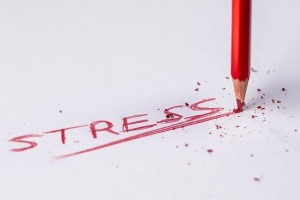
Wendell Berry wrote: ‘Always in the big woods when you leave familiar ground and step off alone into a new place there will be, along with the feelings of curiosity and excitement, a little nagging of dread. It is ancient fear of the unknown and it is your first bond with the wilderness you are going into. What you are doing is exploring.’
As I sit to pen this subject the Governor has just put the state on ‘lockdown’ due to the Coronavirus. The past few weeks has seen a steady progression of restrictions to try and ‘flatten the curve’ on the spread of the virus. Each set of restrictions has necessitated that we learn to cope with whatever the change is. This pandemic represents something none of us have experienced. This means there is no blueprint of what to do. We are all in this together. It is no longer some abstract notion about the interconnectedness of the world, but a real situation with real consequences.
I noticed that the daily stream of information about the pandemic has me feeling vulnerable, anxious, fearful. It has me thinking about coping – how am I coping in the face of something I’ve never experienced? How are you coping in the face of something you’ve never experienced? I’d love to hear from you. I am most interested in what coping strategies are working for you, and what things may not be working so well. I believe sharing our coping strategies will benefit us all. I will lay out some additional thoughts in this first installment and incorporating what you share for Part 2.
First, a little background on coping courtesy of Wikipedia. Coping means to invest one’s own conscious effort, to solve personal and interpersonal problems, in order to try to master, minimize or tolerate stress and conflict. The psychological coping mechanisms are commonly termed coping strategies or coping skills. The term coping generally refers to adaptive (constructive) coping strategies, that is, strategies which reduce stress. In contrast, other coping strategies may be coined as maladaptive, if they increase stress. Maladaptive coping is therefore also described, based on its outcome, as non-coping. Furthermore, the term coping generally refers to reactive coping, i.e. the coping response which follows the stressor. This differs from proactive coping, in which a coping response aims to neutralize a future stressor. Subconscious or unconscious strategies (e.g. defense mechanisms) are generally excluded from the area of coping.
All of us have been ‘coping’ all our lives. Every time we encountered something new, we had to figure out how we were going to ‘cope’ with whatever it was. I believe it is instinctual to cope as part of our survival, it’s just not necessarily instinctual to cope well. As Dr. William Glasser, father of Reality Therapy, states, “We will choose the behavior that gives us the most control, whether it is a healthy choice or not.”
Remember, our first response to a situation is always emotional. How long, and with what intensity we stay in a more emotional state, is function of the magnitude of what we’re dealing with and the coping habits we have created previously. Some of us are more ‘emotional’ in our coping, some not. Some are more verbal (thinking out loud); some of us are quiet (figuring things out first). I would like to think that over time we find patterns of coping that help us reduce our stress; my observation, however, is that there are people who will choose a coping strategy that adds stress long term because it is familiar. Addicts come to mind, but there are many others who will repeat certain coping strategies that are not helpful. Our coping strategies can be nuanced and situational. That is another reason why I believe that sharing our coping strategies will help illustrate variety and provide options for us.
In general, if we do a good job with our coping strategies, they can help us with short and long term stress, tackling challenges (increasing motivation) and increasing our confidence. Those coping strategies help us to build capacity to deal productively with the challenges of life.
So, what is different in dealing with COVID–19? Is it because some of our choices could greatly increase our chances of contracting the virus, and that could lead to death? Is that the progression of the virus is with us daily, and much of the coverage has a ‘doomsday’ feel to it? That it has turned upside down how we live, work, and play? What else is at work? That it’s not just about us, but also that the threat is about our family, regardless of where they live? What else? Do our answers to these questions give us a clue about why, how CLOVID-19 is different? How does that help us in formulating coping strategies?
Part of my experience is that because the stakes are higher, and the need for good coping strategies greater, there is a heightened sense of emotion. That emotion, while normal, can work against us when figuring out how to cope. We spend more time ‘feeling’ than ‘thinking.’ Since there is such a broad base of people experiencing the same event, we can spend a lot of time ‘commiserating’ about what a terrible event this is. This heightened emotional state may have us reading the daily statistics on number infected and those dying and begin to believe that the worst will happen.
It is a challenging time, for sure. It will be interesting to see what we can share of our own experience that will help us gain more insight into coping strategies that are working. I look forward to receiving your comments and emerging thoughts that will help all of us cope better. For now, stay safe and well!
To a better you…
Jim
